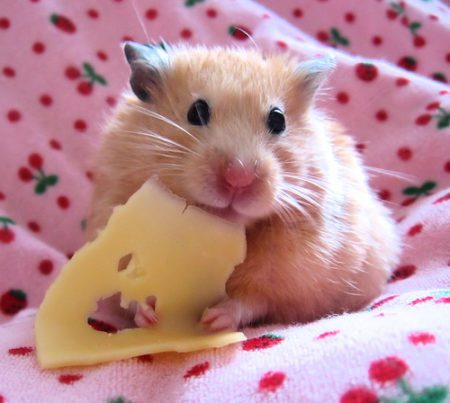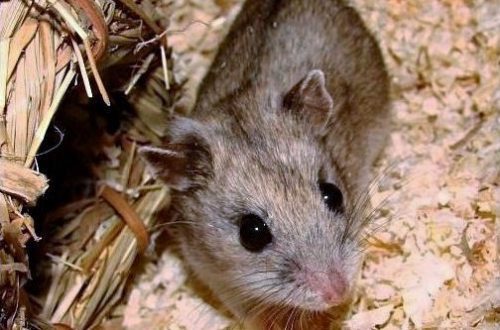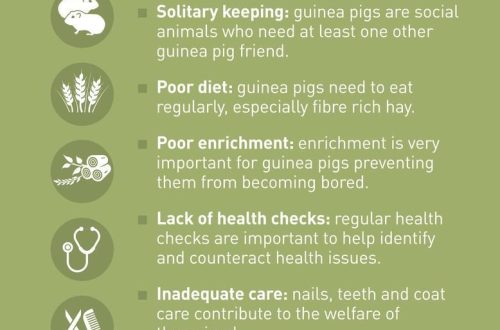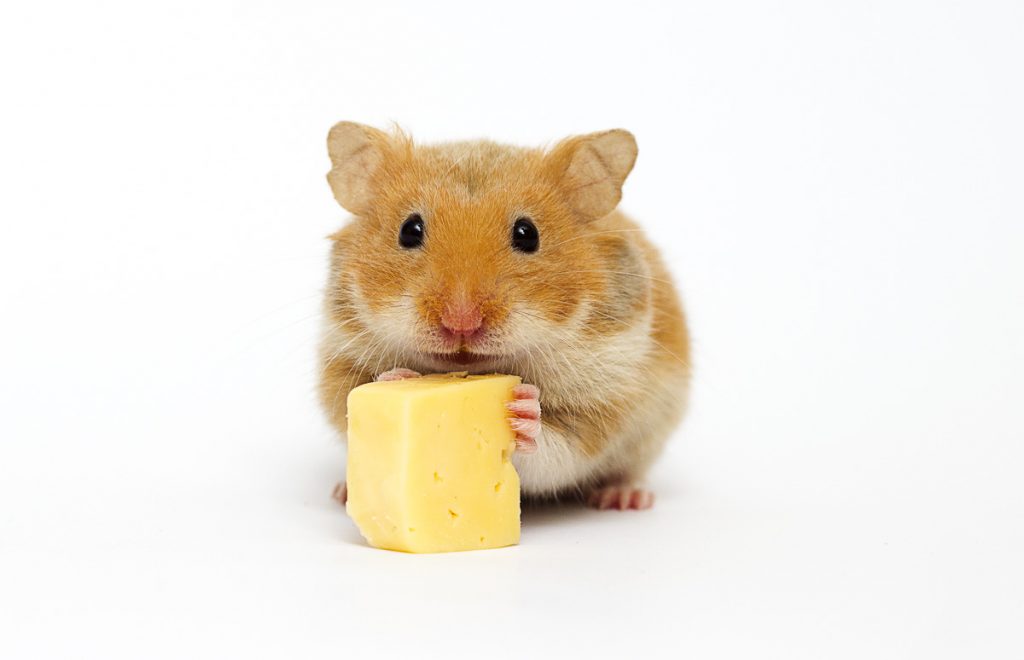
Is it possible for hamsters to cheese (Jungaria, Syrian and other breeds)
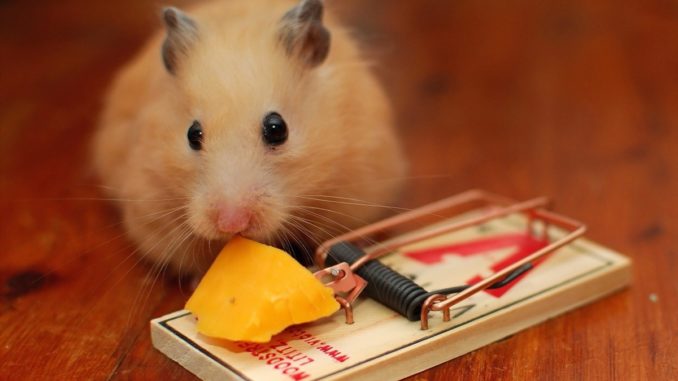
The nutrition of hamsters in nature is not limited to cereals, fruits, and vegetables. For good nutrition, they also need protein foods. Consider whether hamsters can cheese as a product containing a lot of protein.
Under natural conditions, rodents usually eat insects (grasshoppers, beetles, butterflies, etc.), as well as worms and larvae. To make up for the lack of protein foods, pets are advised to buy specialized feed – bloodworms, mealworms, gammarus.
Some domestic hamsters are reluctant to eat such complementary foods, and the owners try to supplement the pet’s diet with products from their table. To understand whether it is possible to give cheese to a hamster, we will analyze in detail the composition of the product.
Contents
Harmful and beneficial components
The main ingredient for making cheese is milk. Sourdough and rennet (a substance obtained from the stomachs of calves) are also used, as well as many auxiliary components:
- col;
- β-carotene;
- calcium chloride;
- potassium nitrate;
- annatto extract;
- calcium nitrate or sodium.
All these substances are allowed for the preparation of cheese by GOST. However, in recent years the quality of cheeses has declined greatly, and it is difficult to find a product that meets these stringent requirements.
The composition of ordinary cheeses lying on store shelves includes various additives, the harm of which is obvious even for people. And the delicate organism of a small rodent will definitely react to them with indigestion or allergies.
If you managed to find a quality product with a good composition, you can offer your hamster low-fat cheese. A small portion will do him good.
When hamsters eat cheese, their body receives:
- Protein. Gives energy and is a building material for the cells that make up the body.
- Amino acids. Essential organic compounds that help fight infections, produce enzymes involved in metabolic processes.
- Vitamins. This dairy product is rich in vitamins A, B, D. They help strengthen the immune system and the whole body, prevent diseases of the cardiovascular system and organs of vision.
- Trace elements: potassium, calcium, as well as magnesium and phosphorus. Obtaining these substances is important for the prevention of cancer, maintaining the body during heavy physical exertion, and the normal functioning of the nervous system.
If the hamster eats cheese with pleasure, you need to choose the most useful variety of treats for him.
What kind of cheese can not be fed
Some varieties are high in fat, high in salt, spices, flavors. Such food is contraindicated for animals. It will cause disturbances in the work of the heart, kidneys, gastrointestinal tract, and will negatively affect the general condition.
Processed grades
To get a delicious processed cheese, manufacturers add milk powder, cream, butter to the base – hard cheese. The fat content of the product increases significantly. Unscrupulous manufacturers use cheap vegetable substitutes (palm oil, etc.) instead of natural animal fats. In order to enhance the natural taste of the product and improve its appearance, salt, artificial flavors, thickeners, melters and other chemical additives are also added to it.
Sausage cheese is a type of processed cheese. It is made from low-fat varieties of hard cheese. It also has a very bright taste, achieved through non-natural ingredients.
Sweet processed varieties contain no less harmful ingredients: sugar or artificial sweeteners, cocoa, syrups, coffee.
All these varieties of cheese are contraindicated for small pets.
“Blue cheese
You should also not feed your hamster blue cheese. Even people are not recommended to eat more than 50 grams of such a treat per day. With excessive use of the mold contained in the product, the digestive tract of the animal will suffer, flatulence, dysbacteriosis will develop. All these phenomena are dangerous for small rodents, so you should not risk your pet’s health.
The best cheese for feeding
Based on the foregoing, it is possible to decide whether a hamster can have cheese of one kind or another, according to the following indicators:
- Fat percentage. The lower it is, the better;
- The amount of salt in the composition. Also, the smaller the better;
- Protein. Here, the opposite is true – a large percentage is welcome;
- Non-natural ingredients, palm oil, etc. Ideally, they should not exist at all;
- Spices. Better to do without them.
These properties are hard varieties with low fat content. It is this delicacy that will be the safest addition to your pet’s diet. We also recommend that you familiarize yourself with the rules for feeding hamsters with dairy products.
How to enter into the diet
How often can cheese be given to a hamster, in what portions and in general, when and how to start complementary foods with this controversial product so that the baby only benefits from it, we will consider below.
Since protein food does not form the basis of the diet of wild rodents, it is not necessary to add it to the diet too often. Two to three times a week will be enough. Highlight special “protein” days (Monday and Friday, or others, as you wish). This must be done so as not to get confused and not harm the pet with excessive amounts of treats. On one of these days, you can treat your furry friend with a piece of cheese.
The portion should be small – a crumb the size of a sunflower seed.
Feeding the animal with a new product should be started carefully – first give half the portion, then evaluate the reaction of the baby’s body. If all is well, you can continue to introduce the product into the diet.
The age of the rodent who first tried this delicacy should not be less than 6 months.
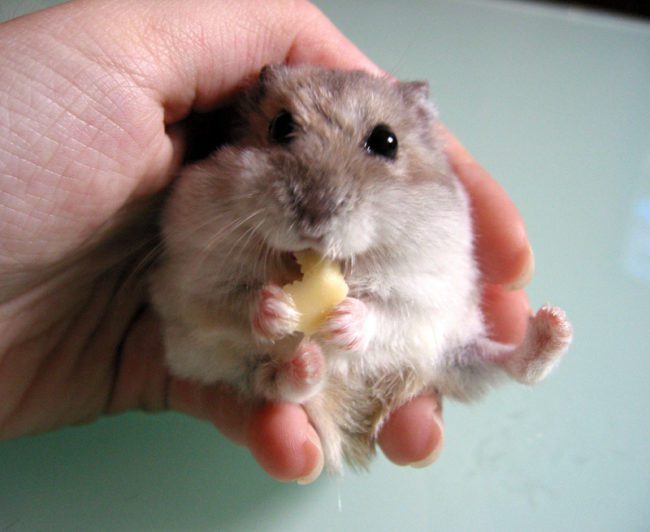
Should I give jungars and Syrian hamsters
The answer to the question of whether high-fat cheese can be eaten by Dzhungars is unambiguously negative. This breed is not very healthy, their body is extremely sensitive to low-quality food, so it’s not worth the risk. Cheese can harm Djungarian hamsters.
Another popular breed of hamster is the Syrian. Giving Syrian hamsters cheese is also not recommended. Salt and fats in the composition of the product will harm the health of the crumbs. Therefore, either choose hard varieties with reduced fat content and give it rarely and in small portions, or simply treat him to low-fat boiled chicken.
Conclusion
Cheese is a healthy product for humans, but it is not worth feeding small domestic rodents in large quantities. The owner is responsible for them. Pets are completely dependent on us in choosing food, so regardless of whether hamsters eat cheese or not, they must be fed to babies with great care.
Can you feed hamsters cheese?
3.2 (64.67%) 107 votes



